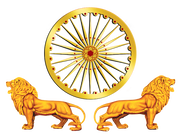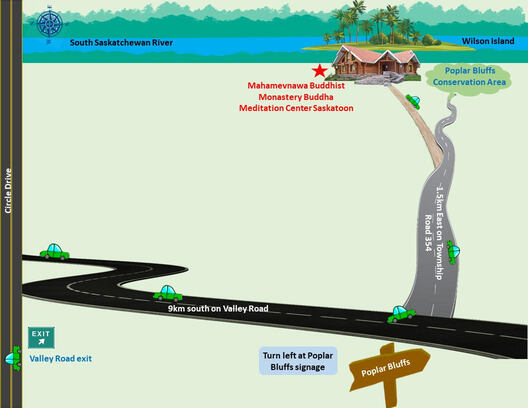Directions to Monastery1. Take Valley Road exit from Circle Drive and drive 9 km.
2. Turn left at the Poplar Bluffs signage on to Township Road - 354. 3. Drive 1.5 km on 354 Township road. This way is to Poplar Bluffs Conservation Area 4. Turn left on to the driveway at the multi-color Buddhist flag at the gate. That is our driveway. It's is a log house. Date and Time in Saskatoon |
|
Mahamevnawa Buddhist Monastery Saskatoon Inc. Charitable Registration No. 81818 5522 RR0001
© All rights reserved by Mahamevnawa Buddhist Monastery Saskatoon

 RSS Feed
RSS Feed

